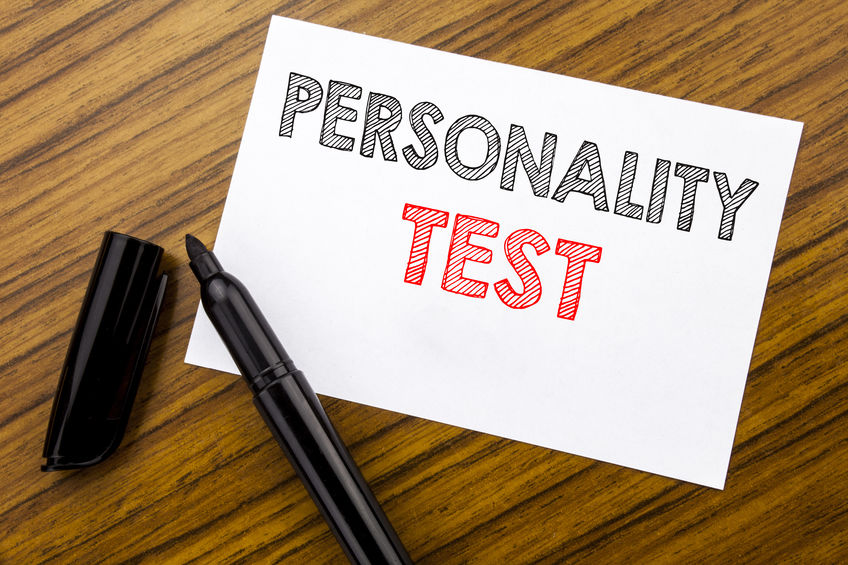Why personality is important in the workplace?
Personality is critically important in the workplace because it influences how individuals interact with others, approach tasks, handle stress, and contribute to the overall culture of the organization. Here’s why personality plays such a vital role in the workplace:
1. Communication and Interaction
- Effective Communication: Different personality types prefer different communication styles. For example, extroverts may prefer open, direct communication, while introverts may value more private, thoughtful exchanges. Understanding personality helps ensure that communication is clear, respectful, and effective, reducing misunderstandings and fostering cooperation.
- Building Relationships: Personality influences how employees build relationships with coworkers, clients, and management. Employees with socially oriented personalities may thrive in networking and relationship-building roles, while those with reserved personalities may excel in roles that require focus and independent work.
2. Team Dynamics and Collaboration
- Diverse Strengths: Different personalities bring different strengths to a team. For example, innovative thinkers might excel at brainstorming and generating new ideas, while detail-oriented individuals might ensure the accuracy and execution of plans. By understanding personalities, teams can balance diverse traits, which enhances collaboration and problem-solving.
- Conflict Resolution: Personality differences can lead to conflict, but understanding these differences can help prevent and resolve disputes. For example, a dominant personality may need to learn how to collaborate with someone who is more passive, while a cooperative personality can help mediate between different perspectives.
3. Leadership and Management
- Adapting Leadership Styles: Leaders who understand their team members’ personalities can tailor their leadership approach to meet individual needs. For example, a supportive leader may inspire trust in introverts, while a directive leader may motivate more assertive team members.
- Motivation: Different personality types are motivated by different things. Some employees may be motivated by autonomy, while others may be driven by recognition or the opportunity to collaborate. Recognizing these preferences allows managers to adapt their approach, improving employee satisfaction and productivity.
4. Employee Engagement and Job Satisfaction
- Workplace Fit: When employees’ personalities align with their job roles, they are more likely to feel satisfied and engaged in their work. For example, a creative, artistic personality might excel in a design role, while someone with a logical, analytical personality may thrive in a data-driven or problem-solving position.
- Reducing Stress: Understanding and acknowledging personality differences can help employees manage stress and expectations. For example, an introvert may prefer a quieter work environment and less social interaction, which can reduce stress and improve focus.
5. Productivity and Performance
- Task Approach: Personality affects how employees approach tasks. For instance, conscientious individuals are typically organized, reliable, and detail-oriented, ensuring high-quality performance. In contrast, creative personalities may take more risks, generating innovative solutions that can lead to breakthroughs.
- Adaptability: Employees with flexible and open-minded personalities are more likely to adapt to changes in the workplace, such as new technology or shifting project requirements, helping the company stay competitive.
6. Building a Positive Work Culture
- Cultural Fit: A person’s personality plays a role in how well they fit into the organization’s culture. For example, a company with a collaborative, team-oriented culture will benefit from employees who enjoy working together, while a company that values independence may attract individuals who prefer autonomy and self-direction.
- Morale and Camaraderie: A workplace where people understand and respect each other’s personalities tends to foster better morale. Teams with a diverse range of personalities can support each other and develop a sense of belonging, which boosts overall productivity and job satisfaction.
7. Personal Growth and Development
- Self-awareness: Recognizing one’s own personality traits helps employees understand their strengths, areas for improvement, and the types of tasks or environments in which they thrive. This self-awareness can lead to personal growth and career development.
- Improving Skills: Understanding personality can also guide employees in developing new skills or adapting their behaviors. For example, a naturally shy person might work on building confidence in public speaking, or a perfectionist might learn to balance attention to detail with efficiency.
8. Innovation and Problem Solving
- Different Perspectives: Employees with different personality types bring varied viewpoints to the table, which fosters creative thinking and innovative solutions. For instance, risk-taking personalities may come up with bold new ideas, while detail-oriented personalities can refine and perfect these ideas.
- Brainstorming: A team made up of diverse personalities is more likely to approach problems from multiple angles, leading to more comprehensive and effective solutions.
9. Client Relations and Customer Service
- Adapting to Client Needs: Personality type influences how employees interact with clients. For example, an extroverted employee might be more comfortable engaging with clients in a social setting, while an introverted employee might prefer one-on-one consultations. Understanding these dynamics helps businesses deliver better client service.
- Empathy: Employees with empathetic personalities are often better at understanding customer needs and providing personalized solutions, which can strengthen customer relationships and loyalty.
10. Enhancing Employee Retention
- Workplace Satisfaction: When employees feel that their personality type is understood and valued, they are more likely to stay with a company. Job satisfaction and morale increase when employees are in roles that suit their natural tendencies, reducing turnover rates.
- Tailored Career Paths: Understanding personality types helps employers provide personalized development opportunities. For example, an employee with a leadership-oriented personality might be more interested in advancing to a managerial role, while someone with a supportive personality may prefer roles in customer service or team coordination.
Personality is a key driver of success in the workplace because it shapes how individuals work, interact, and contribute to the overall culture and productivity of the organization. By understanding personality types, employers can foster better communication, collaboration, and innovation, leading to a more positive, efficient, and productive work environment. It also helps in managing teams more effectively, supporting individual growth, and improving overall employee satisfaction.

How can knowing your personality type help you at work?
Knowing your personality type can significantly enhance your effectiveness and satisfaction at work. Here’s how understanding your personality type can benefit you in various aspects of your professional life:
1. Improved Self-Awareness
- Understanding Strengths and Weaknesses: Recognizing your personality type helps you identify your strengths, such as being detail-oriented or creative, and areas where you may need improvement, like handling stress or public speaking.
- Better Self-Management: With greater self-awareness, you can manage your time, energy, and resources more effectively, aligning your work habits with your natural tendencies.
2. Enhanced Communication
- Tailoring Communication Style: Knowing your personality type allows you to adapt your communication style to suit different colleagues and situations. For example, if you’re an introvert, you might prefer written communication or one-on-one meetings, while extroverts might thrive in group discussions.
- Understanding Others: Understanding your own personality type also helps you better understand and interpret the communication styles of your colleagues, leading to clearer, more effective interactions.
3. Better Team Collaboration
- Identifying Your Role in a Team: Your personality type can help you understand your natural role within a team, whether you’re a leader, a coordinator, or a creative thinker. This understanding allows you to contribute more effectively to group projects.
- Balancing Team Dynamics: By recognizing the diverse personality types within a team, you can appreciate different perspectives, reduce conflicts, and create a more harmonious and productive working environment.
4. Career Path Alignment
- Choosing the Right Career: Understanding your personality type can guide you toward a career path that aligns with your strengths and interests. For example, analytical personalities may excel in roles that require problem-solving, while those with strong interpersonal skills might thrive in client-facing positions.
- Long-Term Satisfaction: Aligning your career with your personality type increases the likelihood of long-term job satisfaction and career success, as you’re more likely to enjoy and excel in work that suits your natural preferences.
5. Effective Leadership
- Adapting Leadership Style: If you’re in a leadership position, understanding your personality type can help you adapt your leadership style to meet the needs of your team. For instance, a leader who is naturally empathetic might focus on mentoring and developing their team members.
- Building Trust: Leaders who are aware of their own personality traits and how they impact their behavior are more likely to build trust and rapport with their team, leading to a more cohesive and motivated workforce.
6. Enhanced Problem-Solving and Decision-Making
- Leveraging Strengths: Different personality types approach problems and decisions in unique ways. By understanding your natural tendencies—whether you are more intuitive or analytical—you can leverage your strengths in problem-solving and decision-making processes.
- Collaborative Solutions: Knowing your personality type helps you recognize when to seek input from others who may have complementary strengths, leading to more well-rounded and effective solutions.
7. Stress Management
- Recognizing Triggers: Understanding your personality type helps you identify what situations are likely to cause you stress and how you naturally respond to pressure. This awareness allows you to develop coping strategies to manage stress more effectively.
- Creating a Balanced Work Environment: By tailoring your work environment and schedule to your personality type, you can reduce stress and improve overall well-being. For example, introverts may need quiet spaces to recharge, while extroverts might thrive in more dynamic settings.
8. Career Development and Growth
- Targeted Skill Development: Knowing your personality type helps you focus on developing skills that will enhance your strengths or mitigate your weaknesses. For example, an introvert might work on public speaking, while a detail-oriented person might develop time management skills.
- Setting Realistic Goals: Understanding your personality type allows you to set realistic and achievable career goals that align with your natural inclinations and strengths.
9. Work-Life Balance
- Managing Energy Levels: Different personality types have different needs when it comes to balancing work and personal life. For instance, knowing whether you’re an introvert or extrovert can help you manage your energy levels by planning downtime or social activities accordingly.
- Preventing Burnout: Understanding your personality type can help you recognize the signs of burnout early and take proactive steps to maintain a healthy work-life balance.
10. Conflict Resolution
- Understanding Conflict Styles: Personality type influences how you deal with conflict. Knowing your natural conflict style can help you approach disagreements more constructively, whether you tend to avoid, confront, or seek compromise.
- Facilitating Resolution: By understanding your own and others’ personality types, you can facilitate better conflict resolution strategies that take into account the different ways people approach disputes.
Knowing your personality type can be a powerful tool for enhancing your performance, satisfaction, and relationships at work. It helps you align your career with your natural strengths, communicate more effectively, collaborate with others, and manage stress. By leveraging the insights gained from understanding your personality type, you can navigate your professional life with greater confidence and success.

How understanding employee personality types can benefit team dynamics and collaboration?
Understanding employee personality types can significantly enhance team dynamics and collaboration in the workplace. Here’s how this understanding can benefit a team:
1. Improved Communication
- Tailored Communication Styles: Knowing each team member’s personality type allows for more effective communication. For example, introverted team members may prefer detailed written communication, while extroverts might respond better to face-to-face discussions.
- Reducing Misunderstandings: Understanding personality types helps prevent miscommunication by allowing team members to interpret each other’s messages more accurately, reducing the potential for misunderstandings.
2. Optimized Team Roles
- Role Assignment: By understanding each person’s strengths and preferences, managers can assign roles that align with individual personality types. For example, a detail-oriented individual might excel in quality control, while a big-picture thinker might thrive in strategic planning.
- Enhanced Productivity: When team members are placed in roles that suit their personalities, they are more likely to perform well and feel satisfied, leading to increased overall productivity.
3. Balanced Team Composition
- Diverse Perspectives: A team composed of various personality types benefits from a wider range of perspectives and approaches to problem-solving, which can lead to more innovative and well-rounded solutions.
- Complementary Strengths: Different personality types bring complementary strengths to the team, allowing members to support each other and cover each other’s weaknesses. For example, a visionary thinker might pair well with a detail-oriented executor.
4. Enhanced Collaboration
- Fostering Cooperation: Understanding personality types can foster a culture of cooperation, where team members appreciate each other’s differences and work together more harmoniously.
- Leveraging Team Strengths: When team members understand their own and others’ personality types, they can leverage their collective strengths more effectively, leading to better collaboration on projects.
5. Effective Conflict Resolution
- Understanding Conflict Styles: Different personality types handle conflict in various ways—some may avoid it, while others confront it head-on. Understanding these differences allows the team to navigate conflicts more effectively and find resolutions that work for everyone.
- Reducing Friction: Awareness of personality types helps to minimize friction by acknowledging and respecting different approaches to conflict, leading to quicker and more amicable resolutions.
6. Increased Employee Engagement
- Alignment with Tasks: When employees are assigned tasks that match their personality types, they are more likely to be engaged and motivated, as they feel their work is a good fit for their natural inclinations.
- Job Satisfaction: Understanding personality types can lead to higher job satisfaction, as employees feel recognized and valued for their unique contributions.
7. Better Leadership
- Adaptive Leadership Styles: Leaders who understand the personality types of their team members can adapt their leadership style to meet individual needs, whether that means providing more guidance to those who need it or giving autonomy to those who prefer independence.
- Building Trust: Leaders who tailor their approach based on personality types are more likely to build trust with their team, as employees feel understood and supported.
8. Strategic Team Building
- Creating Synergistic Teams: When forming teams, understanding personality types allows for the creation of groups that work well together, combining complementary skills and temperaments for maximum effectiveness.
- Predicting Team Dynamics: Leaders can anticipate potential challenges and strengths within a team by understanding the personality mix, allowing them to proactively manage dynamics and encourage positive interactions.
9. Increased Innovation and Creativity
- Encouraging Diverse Thinking: Teams with a mix of personality types are more likely to produce innovative solutions, as different perspectives and thinking styles challenge the status quo and inspire creative problem-solving.
- Balanced Risk-Taking: While some personality types are naturally cautious, others may be more willing to take risks. A balanced team can make well-rounded decisions that consider both the potential rewards and risks.
10. Enhanced Team Morale
- Respect for Individual Differences: When team members understand and respect each other’s personality types, it creates a more inclusive and supportive environment, boosting team morale.
- Recognition and Appreciation: Recognizing and appreciating the diverse contributions of different personality types can make team members feel valued, leading to greater job satisfaction and a positive team atmosphere.
Understanding employee personality types is a powerful tool for improving team dynamics and collaboration. It allows for more effective communication, strategic role assignment, and conflict resolution. Teams with a mix of personality types benefit from diverse perspectives, increased innovation, and higher morale. Leaders who leverage this understanding can create more cohesive, productive, and satisfied teams, ultimately driving better performance and results.
Why is it important to understand personality types in the workplace?
Understanding personality types in the workplace is crucial because it helps improve communication, collaboration, conflict resolution, and overall productivity. Recognizing and appreciating the different ways people think, behave, and interact allows for a more harmonious and efficient work environment. Here’s why understanding personality types is important in the workplace:
1. Enhances Communication
- Tailored Communication: People with different personality types often prefer different communication styles. For instance, an extroverted person may enjoy direct and lively conversations, while an introverted person may prefer more thoughtful, one-on-one communication. Understanding these preferences can help tailor communication to be more effective.
- Minimizes Misunderstandings: Miscommunication can occur when people don’t understand each other’s communication styles. By recognizing personality differences, team members can adjust their approaches to avoid frustration or conflict.
2. Improves Team Collaboration
- Diverse Strengths: Different personality types bring unique strengths to the table. For example:
- Analytical types may excel in problem-solving and decision-making.
- Creative types may bring innovative ideas.
- Detail-oriented types may focus on accuracy and organization.
- Balanced Teams: By understanding the diversity of personalities, managers can assemble teams with complementary strengths, leading to more balanced and productive collaboration.
3. Effective Conflict Resolution
- Anticipating Conflict: Certain personality types may have a higher likelihood of clashing due to differences in communication or work styles. For example, a dominant personality might clash with a more passive person.
- Tailoring Conflict Solutions: Knowing the personalities involved in a conflict allows managers to mediate more effectively by suggesting solutions that appeal to each person’s approach. Understanding someone’s conflict resolution style (e.g., avoidance, competition, collaboration) helps in finding a solution that works for everyone.
4. Enhances Employee Motivation
- Understanding Motivation: People are motivated by different factors based on their personalities. For example:
- Achievement-oriented individuals might be driven by challenges and recognition.
- Supportive individuals might value work that provides a sense of belonging and teamwork.
- Tailored Approaches: By understanding personality types, leaders can tailor their motivational strategies to meet the needs of each employee, improving engagement and job satisfaction.
5. Increases Emotional Intelligence
- Self-Awareness: Understanding your own personality type enhances self-awareness, helping you recognize how you interact with others. This understanding leads to better emotional regulation, a key aspect of emotional intelligence (EQ).
- Empathy: Recognizing and respecting other people’s personality types helps build empathy. Leaders and coworkers who are empathetic are better at responding to the needs and concerns of their colleagues.
6. Supports Career Development
- Identifying Strengths and Weaknesses: Knowing your personality type can help employees identify areas for growth and development. For instance, an employee with a Type A personality might benefit from developing patience, while someone with a Type B personality might need to work on assertiveness.
- Tailored Feedback: Managers who understand personality types can give feedback in a way that resonates with each individual, fostering professional growth and improving performance.
7. Fosters a Positive Work Environment
- Reducing Tension: Understanding personality differences can lead to greater tolerance and appreciation for diversity in work styles. This reduces tension and promotes a more respectful, inclusive environment.
- Building Trust: When people understand and respect each other’s personalities, trust is more easily established. Trust is a fundamental aspect of teamwork and organizational success.
8. Better Leadership and Management
- Adapting Leadership Styles: Different personality types respond better to different leadership styles. For example:
- Authoritative personalities may respond well to direct leadership.
- Supportive personalities may thrive under leaders who are collaborative and empathetic.
- Maximizing Team Performance: Leaders who understand the personalities of their team members can provide more tailored guidance, support, and resources, which can help maximize performance.
9. Boosts Retention and Job Satisfaction
- Workplace Fit: Employees are more likely to stay in roles where they feel understood and valued. When personality types are considered during recruitment and job placement, employees are more likely to feel comfortable and satisfied in their roles, leading to better retention.
- Job Satisfaction: Understanding personality types ensures that employees are working in environments that align with their strengths and preferences, leading to greater job satisfaction.
10. Promotes Innovation and Creativity
- Encouraging Diverse Perspectives: Understanding different personality types can encourage the inclusion of diverse viewpoints and ideas, especially when it comes to problem-solving or brainstorming. People with more innovative personalities may inspire creativity in more structured personalities, and vice versa.
- Collaborative Problem Solving: When different personality types work together, they can approach challenges from multiple angles, leading to innovative solutions.
In Summary:
Understanding personality types in the workplace is key to creating an environment where individuals can thrive both personally and professionally. By fostering better communication, collaboration, and conflict resolution, employees are more likely to be engaged, motivated, and productive. Moreover, recognizing the diverse strengths and work styles of individuals leads to a more positive, supportive workplace culture, which in turn contributes to overall organizational success.
What are two benefits from knowing your coworker’s personalities?
Knowing your coworker’s personalities can provide several advantages, but two key benefits are:
1. Improved Communication and Collaboration
- Understanding Communication Styles: Different personalities have different communication preferences. For example, an introverted coworker might prefer written communication or one-on-one discussions, while an extroverted coworker may thrive in group meetings or casual conversations. Understanding these preferences helps you tailor your communication approach, reducing misunderstandings and ensuring more effective interactions.
- Enhanced Teamwork: By knowing your coworkers’ personalities, you can better assign tasks based on strengths. For instance, a detail-oriented person might excel at project management and planning, while a big-picture thinker could contribute creative solutions or strategic direction. This creates a more balanced and efficient team.
2. Better Conflict Resolution
- Understanding Different Perspectives: Knowing the personality types of your coworkers helps you recognize why conflicts may arise. For example, a dominant personality might clash with a more passive person over decision-making. By understanding each other’s personalities, you can approach the situation with more empathy and find a resolution that respects both perspectives.
- Personalized Solutions: When conflicts arise, understanding personalities allows you to address issues in a way that aligns with each person’s preferred conflict resolution style. For example, some might prefer direct confrontation, while others may appreciate a more diplomatic, mediated approach. This helps resolve disputes efficiently and maintain a positive work environment.



